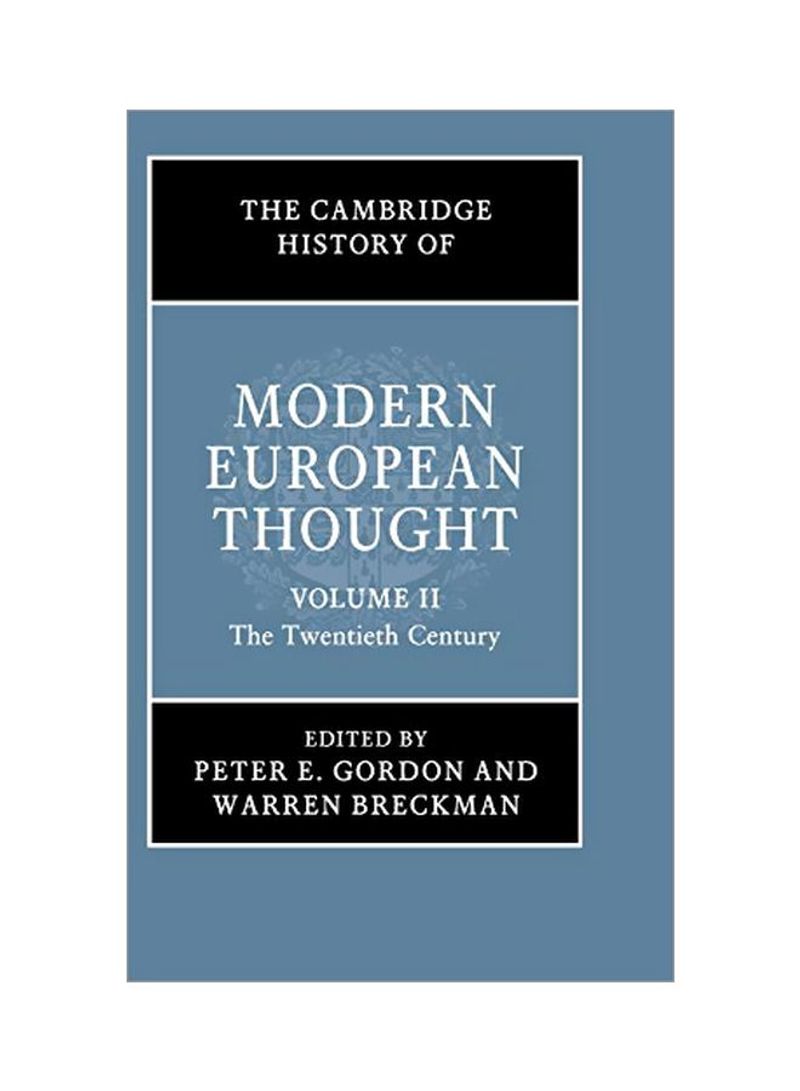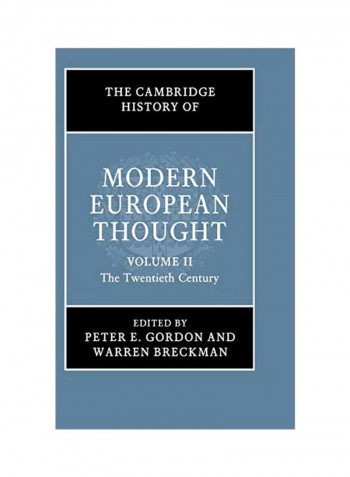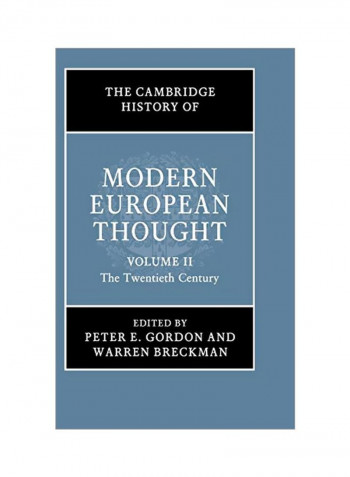The Cambridge History Of Modern European Thought: Volume II, The Twentieth Century Hardcover
Recommend
Sort by
Rating
Date
Specifications
Grade
New
Book Description
The Cambridge History of Modern European Thought is an authoritative and comprehensive exploration of the themes, thinkers and movements that shaped our intellectual world in the late-eighteenth and nineteenth century. Representing both individual figures and the contexts within which they developed their ideas, each essay is written in a clear accessible style by leading scholars in the field and offers both originality and interpretive insight. This second volume surveys twentieth-century European intellectual history, conceived as a crisis in modernity. Comprised of twenty-one chapters, it focuses on figures such as Freud, Heidegger, Adorno and Arendt, surveys major schools of thought including Phenomenology, Existentialism, and Conservatism, and discusses critical movements such as Postcolonialism, , Structuralism, and Post-structuralism. Renouncing a single 'master narrative' of European thought across the period, Peter E. Gordon and Warren Breckman establish a formidable new multi-faceted vision of European intellectual history for the global modern age.
ISBN-10
1107097789
ISBN-13
9781107097780
Language
English
Publisher
Cambridge University Press
Publication Date
31 Oct 2019
Number of Pages
594
Editor 1
Peter E. Gordon
Editor 2
Warren Breckman
Editorial Review
This is simply an incredible resource: essay after essay, written by leading intellectual historians that provide concise, lucid and engaging introductions to the main currents of European thought over the past two centuries. Everyone from students to seasoned scholars will want copies of these books on their shelves.' David A. Bell, Lapidus Professor, Princeton University 'In these well-nigh encyclopedic volumes, Warren Breckman and Peter E. Gordon engage in a daunting feat. They offer compact and informative introductions to essays on very many crucial dimensions of thought in the 19th and 20th centuries. And they furnish, along with their own substantive chapters, contributions from an array of prominent scholars of intellectual and cultural history, all of whom demonstrate impressive expertise in their varied areas of inquiry. The result is an important work of both scholarly and general interest.' Dominick LaCapra, Professor Emeritus of History and Bowmar Professor Emeritus of Humanistic Studies, Cornell University



